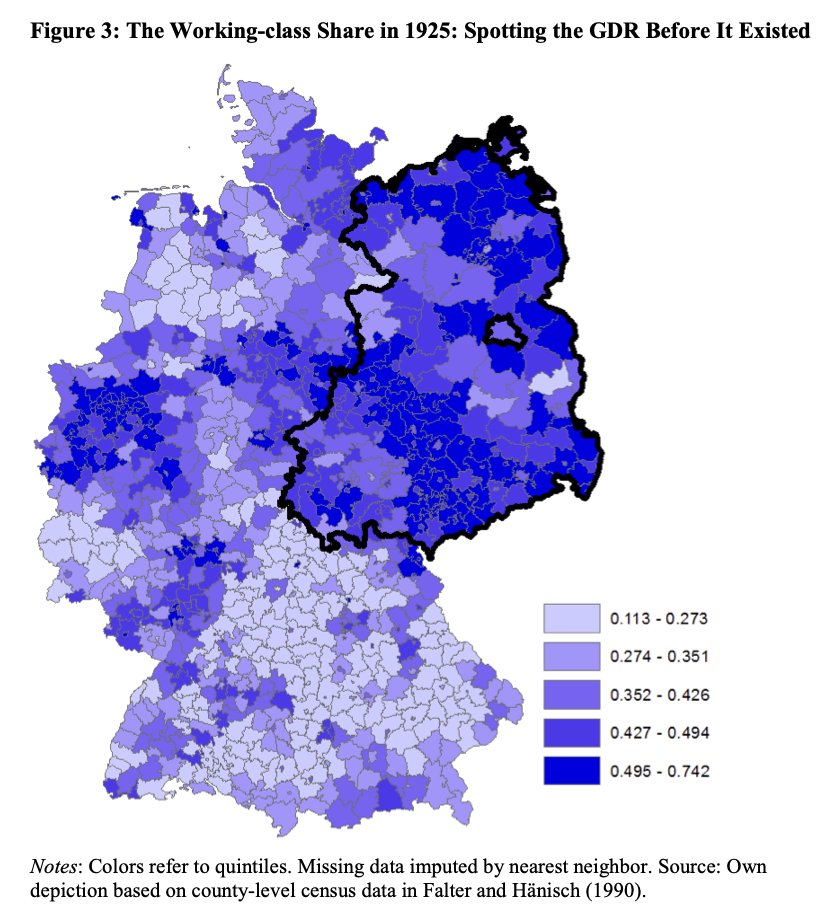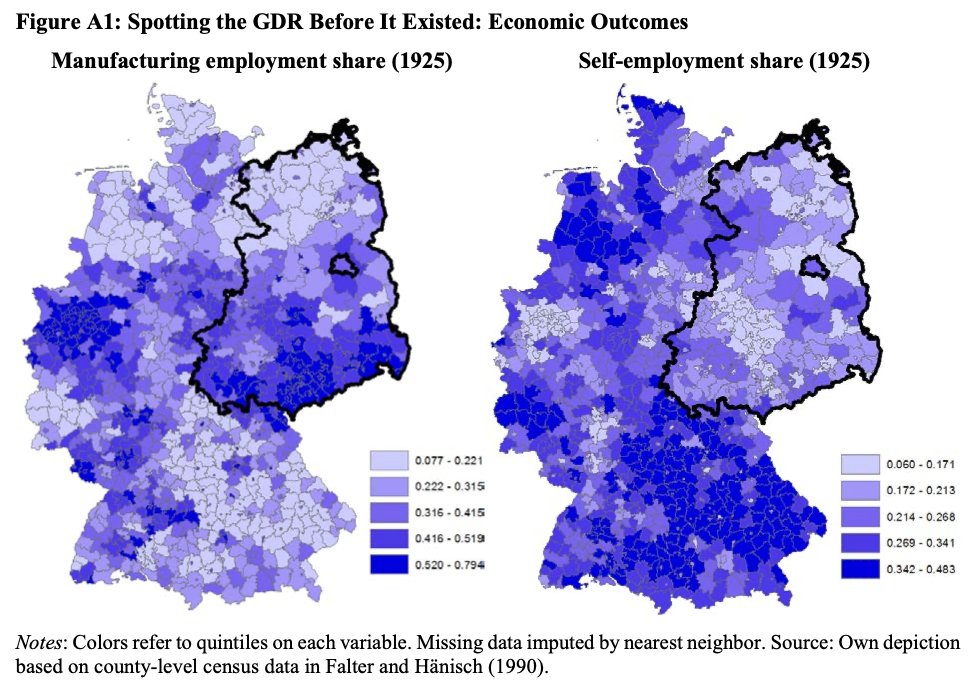Looking forward to our #WEHC2018 session on
The Impact of Religion(s) on Economic Outcomes
co-organized with @fcinnio
Featuring @JeanetBentzen @Melanie_Xue and other great colleagues
wehc2018.org/the-impact-of-…
The Impact of Religion(s) on Economic Outcomes
co-organized with @fcinnio
Featuring @JeanetBentzen @Melanie_Xue and other great colleagues
wehc2018.org/the-impact-of-…
First presenter @JeanetBentzen. Her third presentation at @WEHC2018. Doing lots of exciting work. Today speaking on role of religion in persistence of gender norms. 

Second talk by Philipp Ager on Great Mississipi Flood of 1927. Increase in church membership in more affected areas. Effect more pronounced in stricter denominations. 

Felipe Valencia Caicedo presenting
Christ’s Shadow: Non-Cognitive Skills and Prosocial Behavior Amongst the Guarani
Documenting differential impact of Franciscan and Jesuit missionaries
Christ’s Shadow: Non-Cognitive Skills and Prosocial Behavior Amongst the Guarani
Documenting differential impact of Franciscan and Jesuit missionaries

@Melanie_Xue presenting
Folkore
Paper uses motifs in fairy tales as proxy for World Values Survey in 1800
Folkore
Paper uses motifs in fairy tales as proxy for World Values Survey in 1800

Uwe Sunde presenting new work on
Education and Enlightenment in France
Discusses epistemic knowledge as precursor of technical knowledge. Spread of French collèges before 1750 predicts subscriptions to Encyclopedias used in Squicciarini and Voth (QJE 2015)
Education and Enlightenment in France
Discusses epistemic knowledge as precursor of technical knowledge. Spread of French collèges before 1750 predicts subscriptions to Encyclopedias used in Squicciarini and Voth (QJE 2015)

Next in line: Eric Chaney. Presenting
Religion and the Rise and Fall of Islamic Science
He presented same paper yesterday in other session, and it's like listening to the same great album a second time.
Religion and the Rise and Fall of Islamic Science
He presented same paper yesterday in other session, and it's like listening to the same great album a second time.

Alireza Naghavi presenting joint work with @fcinnio and G. Prarolo on
Islam, Human Capital, and Innovation in Historical Spain
Robust negative relationship between duration of Muslim rule in Spain and accumulation of human capital
Islam, Human Capital, and Innovation in Historical Spain
Robust negative relationship between duration of Muslim rule in Spain and accumulation of human capital

My wonderful session Co-organizer @fcinnio presenting joint work with J. Streb showing that religious diversity in Prussia was conducive to innovation as measured by patents. 

Back to France: Mara Squicciarini presenting
Devotion and Development: Religiosity, Education, and Economic Progress in 19th-Century France
Main finding: more religious locations industrialized later
Devotion and Development: Religiosity, Education, and Economic Progress in 19th-Century France
Main finding: more religious locations industrialized later

Final speaker: @JVidalRobert presenting joint work with @franciscopino and @essobecker on
The Economic Effects of Catholic Censorship During the Counter-Reformation
THE END (of this session)
The Economic Effects of Catholic Censorship During the Counter-Reformation
THE END (of this session)

• • •
Missing some Tweet in this thread? You can try to
force a refresh
























